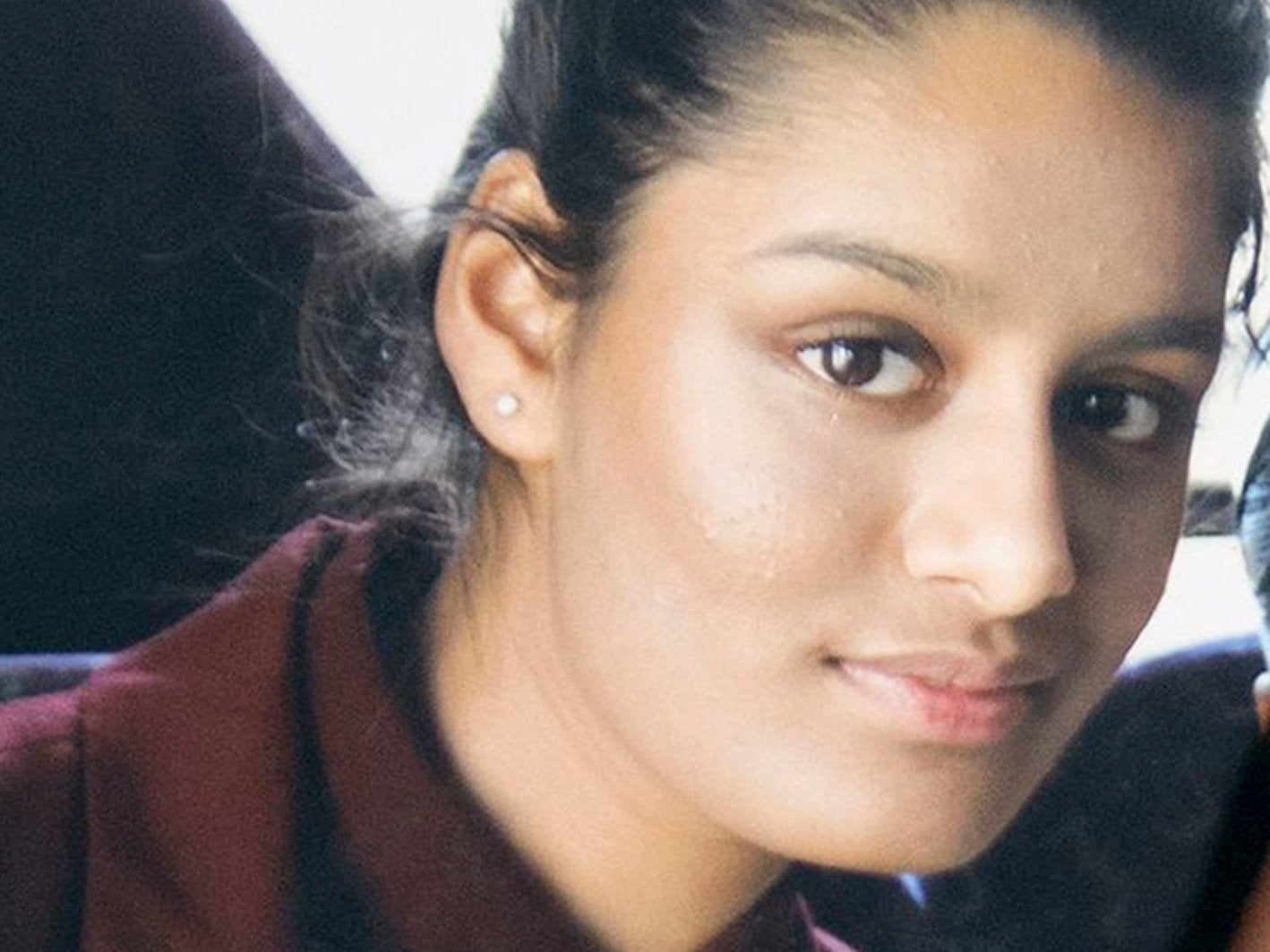Give me a second chance, pleads former Isis member Shamima Begum
She felt like an ‘outsider’ in London but quickly realised Isis were ‘trapping’ people, she claims

Your support helps us to tell the story
From reproductive rights to climate change to Big Tech, The Independent is on the ground when the story is developing. Whether it's investigating the financials of Elon Musk's pro-Trump PAC or producing our latest documentary, 'The A Word', which shines a light on the American women fighting for reproductive rights, we know how important it is to parse out the facts from the messaging.
At such a critical moment in US history, we need reporters on the ground. Your donation allows us to keep sending journalists to speak to both sides of the story.
The Independent is trusted by Americans across the entire political spectrum. And unlike many other quality news outlets, we choose not to lock Americans out of our reporting and analysis with paywalls. We believe quality journalism should be available to everyone, paid for by those who can afford it.
Your support makes all the difference.Shamima Begum has asked Britain to give her a second chance and allow her to return, six years after leaving to join Isis.
In an interview from the camp in Syria where she now lives, she said: “I would say to the people in the UK, give me a second chance because I was still young when I left.
“I just want them to put aside everything they’ve heard about me in the media,” she told filmmakers, France24 reported.
Ms Begum was one of three east London schoolgirls who travelled to Syria in 2015 to join Isis. She ended up living in a refugee camp in Syria, where to begin with, she said she had no regrets, but that she wanted to return to the UK.
While at Al-Roj camp in northeastern Syria, which holds the families of Isis fighters, she had a baby son who died, and Sajid Javid revoked her citizenship when he was home secretary.
She lived under IS rule for more than three years, during which time she was married to a Dutch Isis fighter, with whom she had two other children, both of whom also died.
In 2019, she spoke at length to filmmakers, who shot “workshop” sessions in which she and an American woman, Hoda Muthana, wrote letters to their younger selves expressing regret about their departures for Syria.
Ms Begum recalled feeling like an “outsider” in London who wanted to “help the Syrians” but claims on arrival she quickly realised Isis were “trapping people” to boost the so-called caliphate’s numbers and “look good for the (propaganda) videos”, France24 says.
The documentary, The Return: Life After Isis, made by Alba Sotorra Clua, is being premiered at the online Texas-based South By Southwest festival.
Ms Sotorra told Women and Hollywood: “I hope the audience, after watching this film, will change their perspective on what is the responsibility of our governments regarding thousands of women and children in detention camps in northeastern Syria for more than two years.”
Ms Begum’s lawyers challenged the decision to remove Ms Begum’s citizenship, accusing the government of making her stateless and exposing her to “the risk of death or inhuman and degrading treatment”.
The Special Immigration Appeals Commission ruled the move lawful, saying Ms Begum had not been made stateless.
Last summer the Court of Appeal granted Ms Begum permission to launch a judicial review of that decision, and she wanted to return to the UK to fight for her citizenship.
But in February this year she lost her legal battle when the Supreme Court found she did not need to be in the country to have a “fair and effective appeal”, overturning the Court of Appeal ruling.
The Kurdish authorities holding Ms Begum have repeatedly called for the UK to repatriate her and other Isis members.
Of more than 900 people who travelled to Syria and Iraq from the UK, an estimated half have returned but only about 40 were successfully prosecuted.
Join our commenting forum
Join thought-provoking conversations, follow other Independent readers and see their replies
Comments